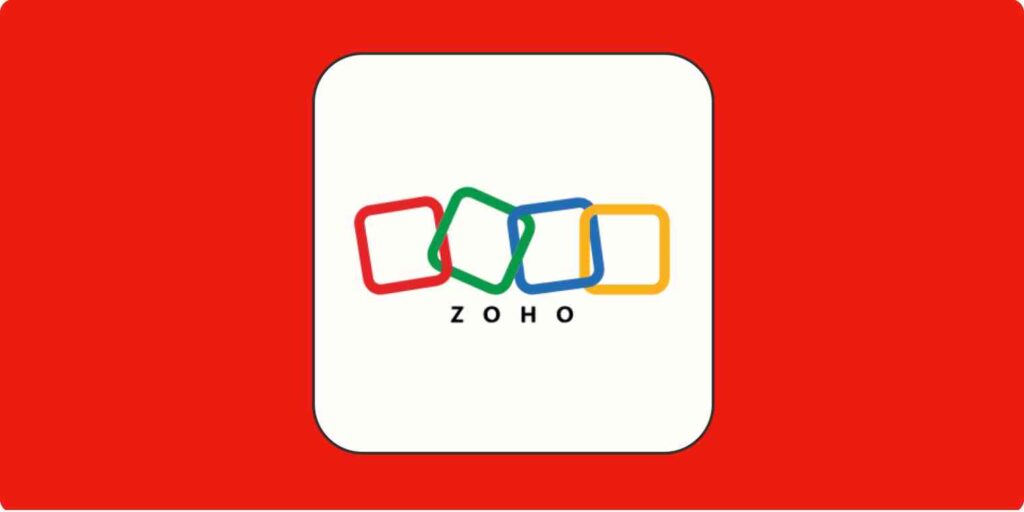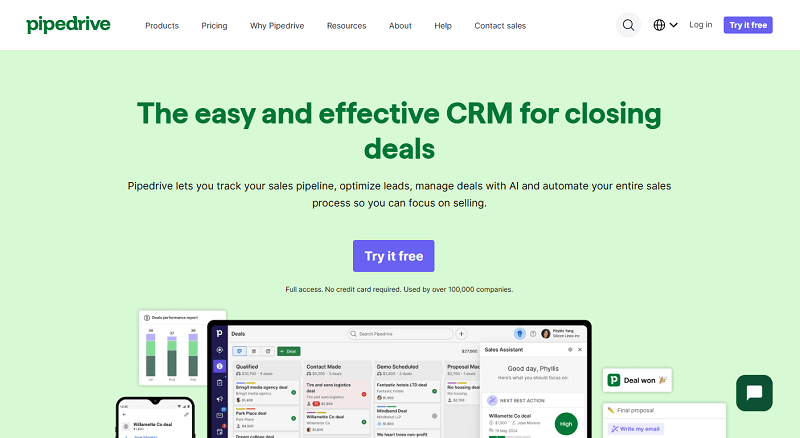You may have finally purchased a Zoho package that suits your business, and now the next hassle lies in its implementation. Well, you’re not alone. I have been there before.
And you are in the right place. This article aims to introduce Zoho CRM implementation and its many associated benefits. Without further ado, let’s in.
Zoho CRM is a cloud-based customer relationship management (CRM) software that helps businesses of all sizes manage their sales, marketing, customer support, and inventory in one platform.
It offers features such as lead and contact management, pipeline management, marketing automation, customer analytics, and integrations with other business applications. Zoho CRM is highly customizable and can be tailored to fit the unique needs of a business, making it a popular choice for businesses of all types and sizes.
Go set up businesses in smaller towns, grow the local economy and build strong value-based relationships with people willing to work towards a common goal. This will make you truly successful.
– Sridhar Vembu, Zoho CEO
Facts about Zoho CRM
Zoho CRM is a popular customer relationship management software used by businesses of all sizes. Here are some key facts about Zoho CRM:
- Zoho CRM was launched in 2005 and is part of the Zoho suite of business applications.
- It is a cloud-based CRM platform that offers features such as lead management, sales forecasting, marketing automation, and customer analytics.
- Zoho CRM is designed to be customizable and flexible, allowing businesses to tailor it to their specific needs and workflows.
- The software offers mobile apps for iOS and Android devices, allowing users to access their CRM data on the go.
- Zoho CRM integrates with over 800+ apps, including Google Apps, Microsoft Office, and social media platforms such as Facebook and Twitter.
- Zoho CRM offers a free version for up to three users, as well as paid plans that include additional features and support.
- The software has won several awards, including the 2020 CRM Industry Leader Award from CRM Magazine and the Highest Score in CRM Watchlist 2022.
- Zoho CRM is used by over 250,000 businesses worldwide, including small startups and large enterprises in a variety of industries.
Benefits of Using Zoho CRM
Here are some of the amazing benefits of using Zoho CRM for your business
- Centralized Customer Data: Zoho CRM helps businesses centralize their customer data, including contacts, leads, and deals, in one platform. This makes it easier for teams to access and update customer information, which can lead to more efficient and effective customer interactions.
- Sales Management: Zoho CRM offers sales management features such as lead and opportunity management, sales forecasting, and pipeline tracking, which helps businesses streamline their sales processes and increase revenue.
- Marketing Automation: Zoho CRM includes marketing automation features, such as email marketing, social media marketing, and web analytics, which helps businesses engage with customers and prospects across multiple channels and increase their marketing ROI.
- Collaboration: Zoho CRM allows teams to collaborate and share information, which leads to more efficient and effective teamwork. It also offers features such as task management, calendar synchronization, and team chat, which further support collaboration.
- Customization: Zoho CRM is highly customizable and can be tailored to fit the unique needs of a business. This means that businesses can create workflows, fields, and reports that match their specific processes and reporting needs.
- Integration: Zoho CRM integrates with other business applications, such as email, marketing automation, and accounting software, which helps businesses streamline their workflows and reduce data entry errors.
Overall, Zoho CRM offers a comprehensive set of features that can help businesses of all sizes manage their customer relationships more effectively and efficiently.
Zoho CRM Implementation Plan
Implementing a CRM system like Zoho CRM can be a complex process that requires careful planning and execution. Here’s a general implementation plan for Zoho CRM:
- Define your business needs: Before you implement any CRM system, you should identify your business needs, pain points, and goals. Determine what features you need from the CRM system and how they will help you achieve your goals.
- Choose a Zoho CRM plan: Zoho offers different plans with different features, so choose the one that meets your business needs.
- Set up your account: Sign up for a Zoho CRM account and set up your account information, including users, roles, and permissions.
- Import your data: You can import your existing customer data into Zoho CRM. Ensure your data is clean and consistent before importing.
- Customize your fields: Customize your fields to fit your business needs. This includes adding custom fields, modifying existing fields, and setting field-level security.
- Set up automation: Zoho CRM offers automation features such as workflows, macros, and alerts. Configure these features to automate your business processes and save time.
- Integrate with other systems: If you use other business software, such as email or marketing automation software, you can integrate them with Zoho CRM.
- Train your users: Train your users on how to use Zoho CRM, including how to input data, track leads, and manage customer relationships.
- Go live: After testing and training, you can go live with Zoho CRM.
- Evaluate and optimize: Evaluate the effectiveness of your Zoho CRM implementation regularly and optimize your configuration to improve efficiency and ROI.
Remember that every business is unique, so your implementation plan may vary depending on your specific needs.
Other Software Tools for Businesses
As great as CRM software tools are, they don’t work in isolation.
Other aspects of your business would need unique and dedicated software to handle.
Here’s the best part, most CRM software is flexible and open to integration. That means you can seamlessly integrate them with another software tool.
Here is a few other software you’ll need:
1. FreshBooks:
Freshbooks is intuitive and pocket-friendly accounting software for business owners and organizations. Some of its top features include invoicing, expenses, time tracking, projects, payments, reporting, accounting, and reconciliation.
Essentially, Freshbooks takes the burden of accounting off your shoulders.
Get a 30-day Free Trail of Freshbooks here
2. Vonage:
Vonage is a business phone system that enables businesses to link their VoIP phone system to online-powered devices for communication via text or video conferencing.
Basically, Vonage supercharges your phone system for effective local and international communication.






























